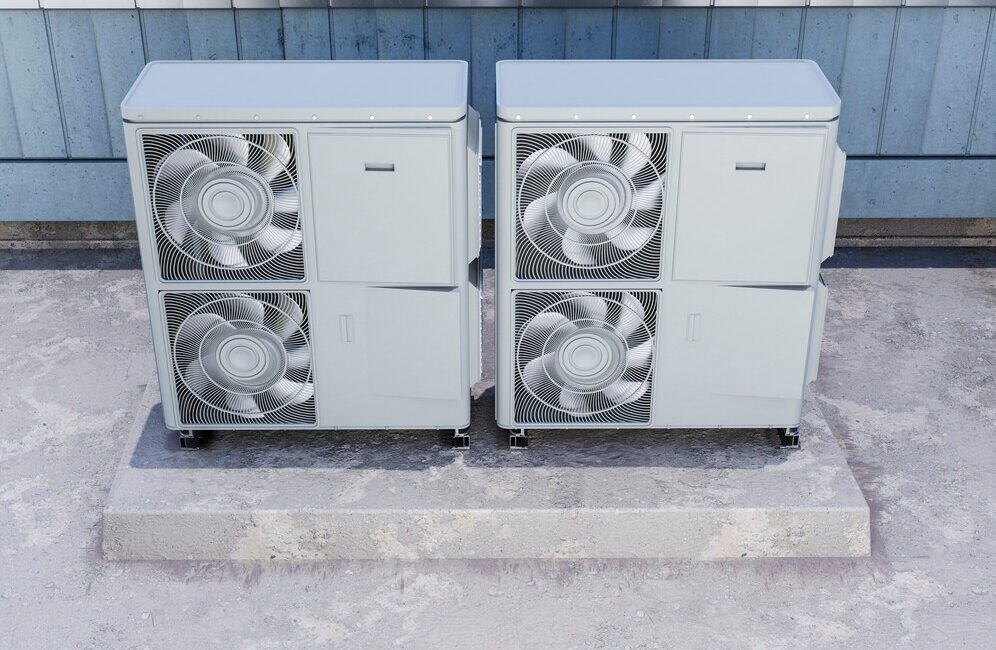As homeowners increasingly seek energy-efficient and eco-friendly solutions to maintain a comfortable living environment, heat pumps have emerged as a versatile heating and cooling option gaining traction around the world. Heat pumps offer several benefits, including energy efficiency, cost savings, and year-round comfort, making them an appealing choice for many homes. Bears Home Solutions will delve into how heat pumps work and discuss their various advantages, ultimately guiding you toward an informed decision about whether a heat pump is a suitable solution for your home’s heating and cooling needs.
Heat pumps function by utilizing the principles of heat transfer to move heat energy between the indoor and outdoor environments. In the winter months, heat pumps extract heat from the outdoor air and transfer it indoors to provide warmth. Conversely, in the summer months, heat pumps work in reverse, removing heat from the indoor air and releasing it outdoors to create a cool and comfortable living space.
Types of Heat Pumps and Their Applications
There are three primary types of heat pumps available, each suited for different applications depending on factors such as climate, home design, and individual needs:
- Air-Source Heat Pumps: The most common type of heat pump is air-source heat pumps, which draw heat from the surrounding outdoor air. They are suitable for a wide range of climates and can provide efficient heating and cooling for most homes.
- Ground-Source Heat Pumps: Also known as geothermal heat pumps, ground-source heat pumps rely on stable underground temperatures to transfer heat between the home and the ground. Although they tend to have higher upfront installation costs, ground-source heat pumps generally offer higher efficiency and a longer lifespan than air-source heat pumps.
- Mini-Split Heat Pumps: Also known as ductless heat pumps, mini-split systems are an excellent option for homes without existing ductwork or where a ducted system is impractical. Mini-split heat pumps consist of an outdoor unit and one or more indoor units, providing targeted heating and cooling in specific rooms of your home.
Additional Benefits of Heat Pumps for Indoor Air Quality
In addition to energy efficiency and year-round comfort, heat pumps can also provide further benefits in terms of indoor air quality:
- Reduced Humidity: Heat pumps have a dehumidifying effect while in cooling mode, heng to maintain comfortable humidity levels in your home dg the months.
- Improved Air Filtration: Heat pumps typically include air filters that help remove dust, allergens, and other air contaminants, ensuring a cleaner and healthier indoor environment.
- No Combustion: Unlike traditional furnaces that rely on the combustion of fossil fuels, heat pumps do not produce any harmful byproducts, such as carbon monoxide, contributing to a safer and healthier living environment.
Factors to Consider When Choosing a Heat Pump
When selecting a heat pump for your home, several factors should be considered to ensure optimal performance, energy savings, and comfort:
- Size and Capacity: Properly sizing your heat pump is essential for achieving the desired performance and efficiency. Our professionals can help you determine the appropriate size and capacity based on your home’s unique requirements.
- Climate: While heat pumps are generally suitable for a wide range of climates, certain types, such as air-source heat pumps, may be less effective in regions with extreme cold temperatures. Understand your local climate and discuss the best options with our professionals to ensure your heat pump can deliver the desired performance.
- Efficiency Ratings: Like other HVAC systems, heat pumps come with efficiency ratings, such as the Seasonal Energy Efficiency Ratio (SEER) for cooling and Heating Seasonal Performance Factor (HSPF) for heating. Loohigher-rated heat pumpsatings to ensure the maximum possible energy efficiency and potential savings.
Proper Installation and Maintenance for Optimal Performance
To get the most out of your heat pump, proper installation and maintenance are essential:
- Professional Installation: Trusting our experienced technicians with the installation of your heat pump ensures it is correctly sized, set up, and configured for optimal performance, safety, and efficiency.
- Scheduled MaintenHeat, heat pumps require regular maintenance, including annual inspections and ser, like any HVAC system. Our professionals will ensure your system remains in top condition by cleaning coils, adjusting refrigerant levels, and inspecting major components.
- Filter Replacement: Regular air filter replacement is crucial for both performance and indoor air quality. Consult our professionals for recommendations on filter types and replacement schedules.
Conclusion
Heat pumps offer an array of benefits, including energy efficiency, eco-friendliness, and year-round comfort, making them a viable heating and cooling solution for many homeowners. By understanding the types, applications, and factors to consider when choosing a heat pump, you can make an informed decision that suits your home’s unique needs. Trust our professionals at Bears Home Solutions to guide you through the selection, installation, and maintenance process, ensuring you enjoy the full benefits of this versatile HVAC system. Contact us today to learn more about our heating and air conditioning services in Fargo.

